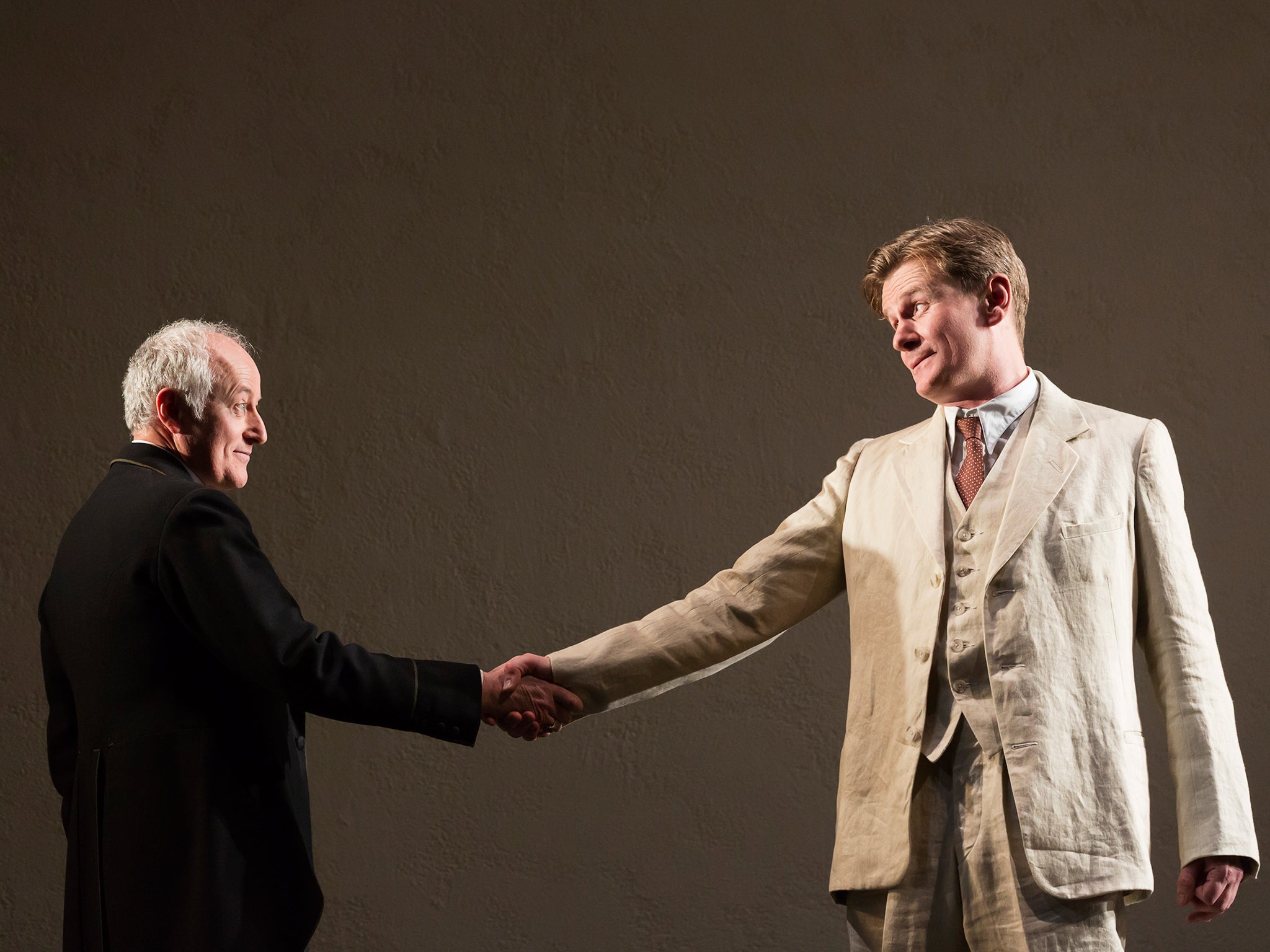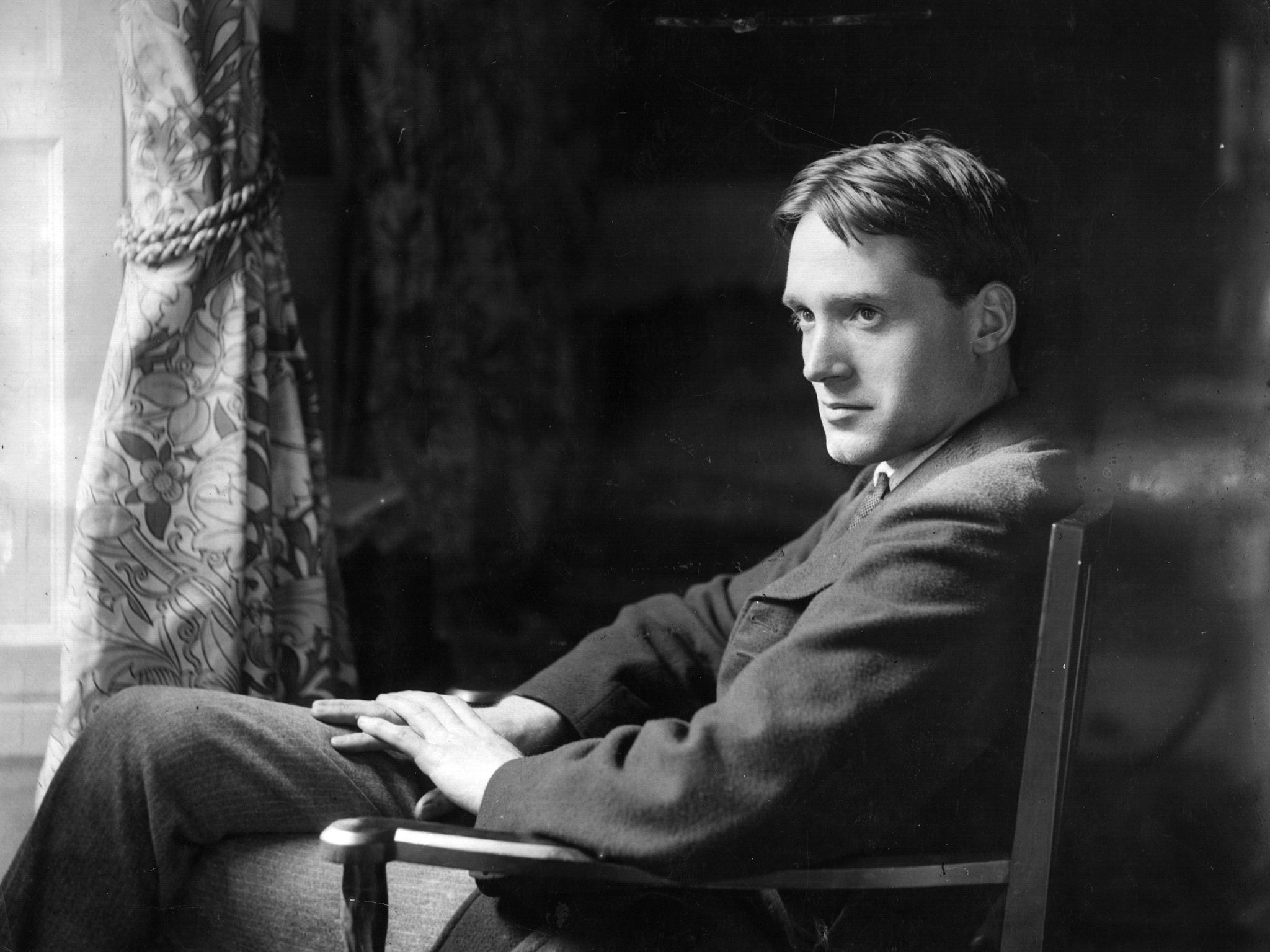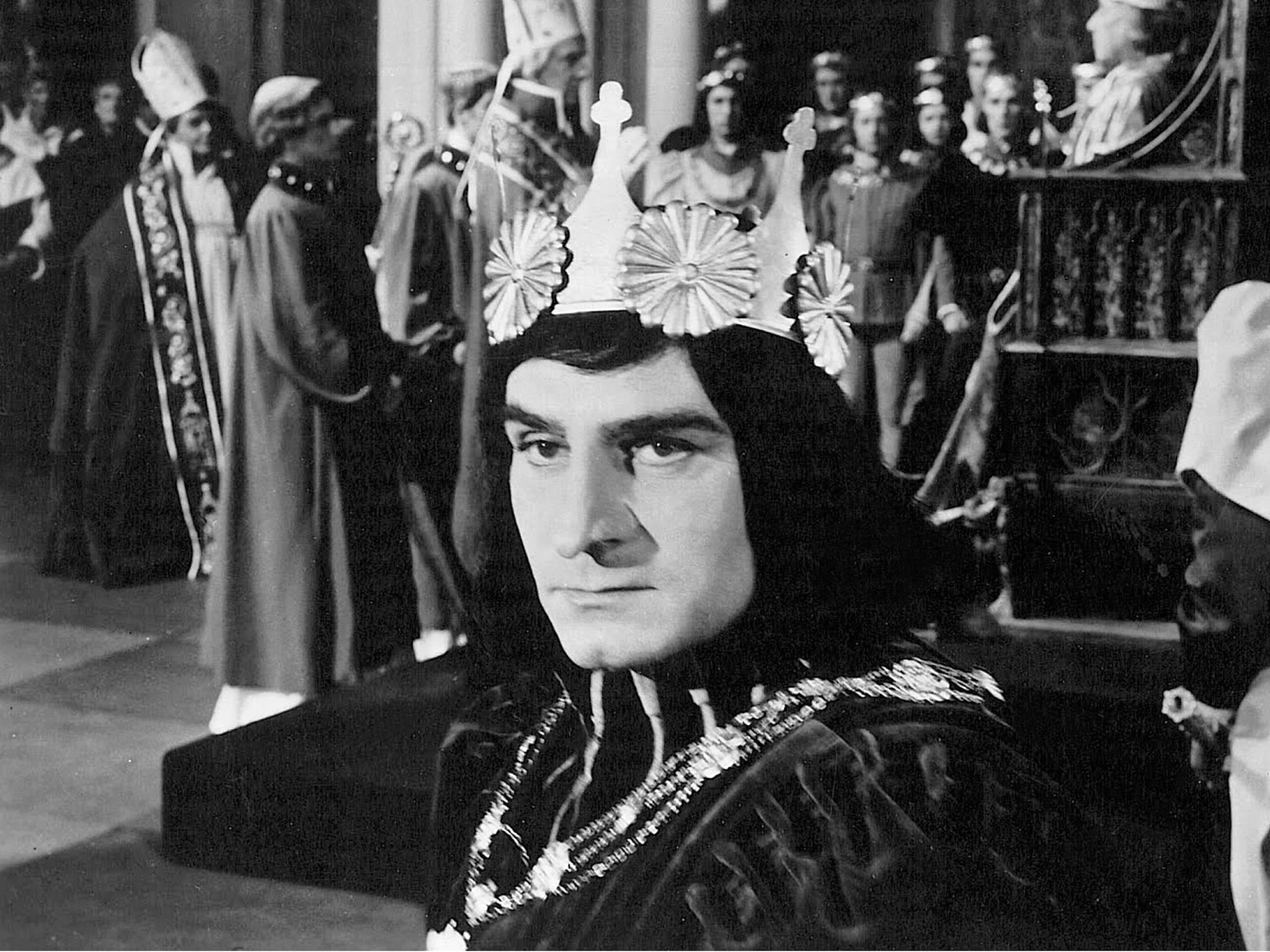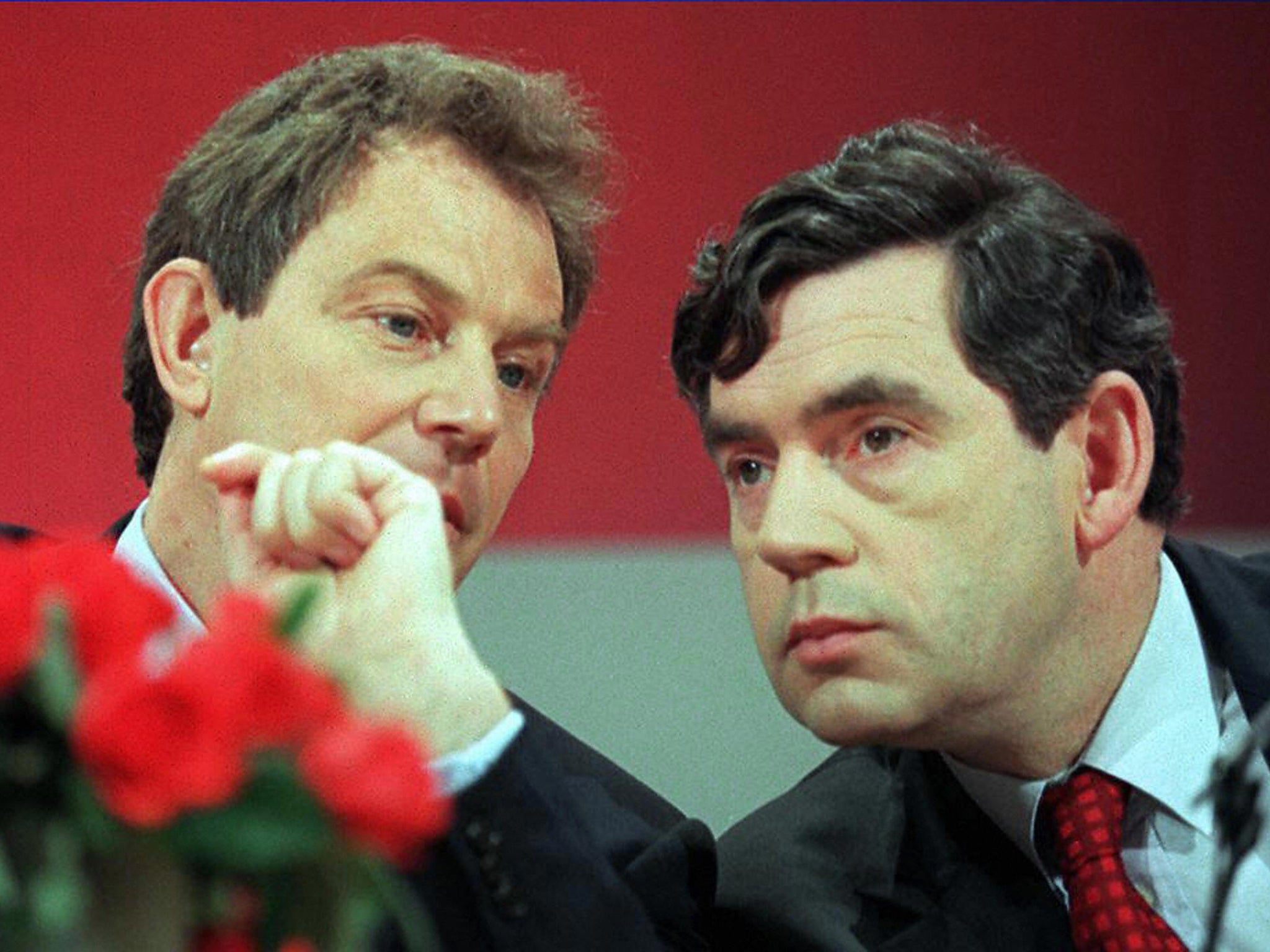Waste: How the revival of Harley Granville Barker's play proves theatre can still speak truth to power
108 years after it was banned by the Lord Chamberlain Waste is as timely, outspoken and provocative as ever

Your support helps us to tell the story
From reproductive rights to climate change to Big Tech, The Independent is on the ground when the story is developing. Whether it's investigating the financials of Elon Musk's pro-Trump PAC or producing our latest documentary, 'The A Word', which shines a light on the American women fighting for reproductive rights, we know how important it is to parse out the facts from the messaging.
At such a critical moment in US history, we need reporters on the ground. Your donation allows us to keep sending journalists to speak to both sides of the story.
The Independent is trusted by Americans across the entire political spectrum. And unlike many other quality news outlets, we choose not to lock Americans out of our reporting and analysis with paywalls. We believe quality journalism should be available to everyone, paid for by those who can afford it.
Your support makes all the difference.The hero of Harley Granville Barker’s play Waste is a progressive politician lured into a pact with the Tories to secure them a safe majority in a hung parliament, then ruthlessly dumped by his erstwhile “partners”. It may not come as a great surprise that, when director Roger Michell was rehearsing the new National Theatre production of this ever-topical classic, he invited Nick Clegg to talk to the cast. The former deputy prime minister declined.
“The big debate in the play,” argues Michell, “is between idealism and pragmatism.” Not only Clegg has bruising experience of that. Neil Kinnock did answer Michell’s call. The first modernising Labour leader proved an “absolutely fascinating” witness to that evergreen dispute. Henry Trebell, Barker’s uncompromising social reformer, aims for outright victory, sticks to his guns – and loses everything. Michell reports that Kinnock “found the character of Trebell repulsive”. He maintained that “the hard road is to work with what you have, in order to make people’s lives better. I found it a very compelling argument”.
Today, 108 years after Waste was banned from public performance by the Lord Chamberlain and 79 after its first professional production, Barker’s warhorse frisks like a pony: as timely, outspoken and provocative as ever. Along with The Voysey Inheritance (Maxwell-style fraud in the family firm) and The Madras House (hypocrisy and exploitation in the fashion business), it remains one of the best-loved plays from the author, director, impresario and pioneer campaigner for a National Theatre. He did more than any other single figure to shape the structures and styles of the modern British stage.

The theatre historian Richard St Peter wrote in a recent study, “One can make the argument that the three most essential theatres in England are the National Theatre, the Royal Shakespeare Company and the Royal Court Theatre. It is no small claim to make that Barker directly influenced the fates of all three.” Born in 1877, English and Italian by descent, Harley Granville Barker played his first stage role aged 14, in Harrogate. After a busy 1890s as actor and manager, he co-founded the Stage Society, joined the Fabian Society, and collaborated with George Bernard Shaw, William Archer and Gordon Craig to create a forward-looking and outward-looking theatre in Britain. As early as 1904, Barker and Archer published their “Scheme and Estimates for a National Theatre”. He wrote then that they might have “a very long time to wait” before it came to pass. It took until 1976 for the National’s South Bank headquarters to open. However, its repertory system now does exactly what Barker had intended and foreseen. It came late, but the prophet did win some honour in his own country.
Back in 1907, as Barker fought to build and keep an audience for challenging modern drama at the Royal Court in Sloane Square, the ostensible reason for the ban on Waste was the illegal backstreet abortion that dooms its hero. It kills Trebell’s married lover Amy O’Connell, and so gives the scheming Conservatives enough rope to hang the independent MP and trash his progressive scheme to cut the Church of England loose from the state and divert its resources into public education. That motive for censorship sounds plausible enough, on the strait-laced Edwardian stage, until you realise that the Lord Chamberlain’s office had few qualms about licensing other plays that touched on the “criminal operation” of abortion – even Elizabeth Robins’s suffrage drama Votes for Women!, which Barker had just directed during his revolutionary tenure as manager and mastermind at the Royal Court.

It was not just the casual, and cynical, sexual frankness of the male Establishment in club and drawing room that alarmed the censor. Rather, Barker’s play had torn the veils away from the covert exercise of power in Britain and left some highly plausible portraits of the elite shivering naked in the spotlight. Michael Pennington played Trebell in Peter Hall’s 1997 revival at the Old Vic: a run that coincided with the downfall of a sleaze-ridden Tory government. For him, “the real reason” for the ban “was his ruthlessly perceptive eye on backstage political manoeuvring”.
Barker and his allies fought hard for the play and even managed, in 1909, to instigate a parliamentary inquiry into censorship. Nonetheless, the struggle helped to wear him out: “Waste has wasted me,” he said. Although he ran successful seasons of new plays and of Shakespeare at other theatres, the First World War put a full stop to his grander plans. In its aftermath, he retreated to a country house in Devon with his second wife (an American heiress), added a hyphen to his name, and settled into a semi-detached role as the lost leader or “king over the water” of the progressive theatre. In 1926, he revised Waste into the leaner, swifter and more contemporary-sounding version that most productions choose today.
Although he did write more plays, younger generations of actors and students came to know Barker more for the perceptive and practical guidance of his Prefaces to Shakespeare than the taboo-busting dramas of the 1900s. Yet, as a bricks-and-mortar National Theatre began to take shape very much according his blueprints, all his successors – Peter Hall, Richard Eyre, William Gaskill – saluted him and paid their dues via lively new productions of his work. For Roger Michell, he remains “the most unpraised pioneer of the British theatre”. To Michael Pennington, “He was ahead of his time in all sorts of ways.”
Waste, at least, now lives, and thrives. It finally reached the West End in 1936. Filmed as a BBC Play of the Month in 1977 to mark the centenary of Barker’s birth, it has tended to surface on stage just as the perennial conflicts that it highlights come to the fore again. When Pennington recreated Trebell during the tacky dog-days of John Major’s fragile premiership, “we packed the Old Vic right up to the day of the election”. Then along came the seemingly saintly Tony Blair, and “the bottom fell out of our business… He was the conquering hero: undeniably charismatic. There was palpable fatigue with the Tory years. Audiences didn’t want to go and see plays about the Tory party being sleazy. They were sick of it.”
In 2008, just as Blair gave way to Brown while a global banking meltdown loomed, Waste was recycled on the London stage – at the Almeida, with Sam West as director. Now, it opens as another set of crises shake the Palace of Westminster, and a new Conservative government with a slender majority discovers that its most cherished plans may face defeat. The National “should have asked George Osborne” to sit in on rehearsals, thinks Pennington.
Roger Michell, returning to the South Bank after a theatre, film and TV career that spans Notting Hill, Enduring Love, Le Week-End and The Buddha of Suburbia, notes that Waste lays bare a tight-knit clan of initiates who close ranks to expel the troublesome outsider. Attracted above all by “the sheer quality of the writing”, he originally expected his production to coincide with another hung parliament. Instead, after the Labour Party’s change of leadership and direction, “this play has reversed itself even more into resonance’’ – with “a quasi-naïve idealist elevated to a position of extraordinary influence”. At the close, with the hapless Utopian crushed by his own tragic flaws as much as by his rivals’ traps, Michell suspects that spectators will conclude that “it’s the Bullingdon Club who are going to rule England again. A lot of the characters in this play are related to each other. Half of them went to Harrow and the other half to Balliol. You get the feeling that nothing at all has changed”.
As Barker saw, perhaps more clearly than his friend and co-conspirator Bernard Shaw, the drama of politics and ideology needs handling with care, and above all with a human touch. Indeed, it was Barker’s talents as director that lifted talky works such as Shaw’s Major Barbara and Man and Superman off the page and made them hits at the Royal Court. Michell admits that “I find Shaw hard going. It seems like animated debate”. Whereas a play like Waste “sounds far closer to the European tradition of Maeterlinck, Chekhov and Strindberg, which we then adopted and made our own”. To Pennington, the Shaw-Barker comparison “is unavoidable. I know who I warm to most, and it’s Barker. With Barker’s plays, you’re not being preached at in the same way”. Certainly, Shaw could hardly have written the scene in which Amy insists on an abortion against Trebell’s wishes. As Pennington comments, “The woman wants the abortion. The man wants the baby. It’s a reversal of all that you expect.” Trebell will forfeit both his unborn child and his beloved bill: a “double whammy” of waste. “It’s a true tragedy for him. I don’t accept that he’s a cold and manipulative person.”
Barker grasped a truth that later dramatists have had to find out the hard way. The adversarial system of British parliamentary politics is intrinsically theatrical. No melodrama could upstage the antics of PMQs. No courtroom nail-biter can match the late-night frenzy of a close-run vote. For theatre-makers, this has proved more of a burden than a gift. Try to put the Commons on stage, or screen, and the histrionic reality will mock your best efforts. Go backstage, however, and the hidden turmoil of deals and steals, stitch-ups and back-stabbings, can yield rich fruit. Barker understood, and exposed, the seamy side of mass democracy. As Roger Michell notes, behind the distracting hubbub of parliament and media, “The most enormous, seismic decisions get taken behind closed doors in people’s living rooms.”
Later dramatists for stage and screen, from David Hare and Trevor Griffiths to Peter Morgan and James Graham, have learned Barker’s lessons well [see box, right]. He lifted the veil not only on the private life of politics but the inner lives of politicians, digging into the twisted roots of their platforms and ambitions. One of his post-First World War plays, closer to the symbolic psycho-drama of late Ibsen than the merry knockabout of Shaw, is called The Secret Life. It features another of Barker’s tormented idealists – Evan Strowde, who, “one fine day”, finds “that the world I’m living in is nothing like the idea of the world I’ve been living by”. After Waste, early in the Corbyn era, surely a big-stage revival of The Secret Life beckons? It might help to pay off more of theatre’s debt to the trailblazer described by his biographer Charles Purdom as “a Moses who sensed the future, but did not enter it”.
‘Waste’, now in preview at the Lyttelton Theatre, opens tomorrow and runs until 19 March nationaltheatre.org.uk
The drama of British politics: 10 more vote-winners
William Shakespeare, Richard III (1593)

Any of Shakespeare’s histories might serve (or, for that matter, Macbeth). Still, with the crookback Richard’s rise and fall, he drew the ultimate portrait of a lust for power that must consume not just its foes but its author. Richard’s partisans also brand it as the first, greatest and most shameless case of the spin that can wreck a reputation – for ever.
Thomas Middleton, A Game at Chess (1625)
With the English and Spanish power-brokers thinly disguised as White and Black pieces on a board, Middleton ruthlessly dissects the diplomatic intrigues of his age in a sensational satire that the London authorities shut down. As a fearless, funny expose of realpolitik, it broke taboos, outraged the mighty – and proved a massive hit.
Thomas Otway, Venice Preserv’d (1680)
As in Middleton’s time, Restoration censorship demanded that local politics wear a mask on stage. In Otway’s tragedy of love and ambition, the cut-throat rivalries of the Venetian elite stand in for conspiracies at the court of Charles II. His paramours and courtesans play leading, if secret roles – but also pay the price for their lovers’ botched plots.
George Bernard Shaw, Man and Superman (1903)
At the Royal Court, Granville Barker whittled Shaw’s great sprawling treatise on revolution, evolution and demonic drives into an actable play. His Jack Tanner – avatar of Don Juan, genius, radical, cave-man – embodies and exposes the limits of democratic betterment in an era when society and men (especially) have yet to change enough.
Elizabeth Robins, Votes for Women! (1907)
Also directed by Granville Barker, this pioneer suffrage drama sets intimate scenes that tie private lives to public issues alongside an epic vision, as it puts feminist mass rallies on the stage. Robins anticipated the many later plays that would also switch between close-up episodes of political romance, and a panoramic view of social change.
Caryl Churchill, Light Shining in Buckinghamshire (1976)
Set in the 1640s, as the English Civil War brewed its heady mix of revolutionary ideas, Churchill’s historical epic marries fierce debate on the meaning of democracy with an abiding concern for the anonymous folk to whom politics is done. As Cromwell looms behind the Utopian idealists, the game of power again favours the fixer over the dreamer.
Trevor Griffiths, Bill Brand (1976)
Younger readers may be astonished to learn that Griffiths’ 11-part Thames TV series about a hard-left Labour MP and his struggles with the rules and ruses of the parliamentary system aired week after week on peak time ITV, at a period of national upheaval. As timely as ever, it deserves another outing – although, these days, even BBC4 might be too risky.
David Hare, The Absence of War (1993)
Written in the aftermath of Kinnock’s defeat, Hare’s behind-the-scenes study of spin, strategy and conviction in the Labour Party has lost none of its urgency in the wake of Miliband’s. Forced to act a bland and polished part, Hare’s George Jones loses his soul to win a focus-group. Media-packaged persona and authentic personality collide, with dire effects.
Peter Morgan, The Deal (2003)

Morgan’s influential TV screenplay about the Blair-Brown pact in an Islington restaurant forged the template for a dozen other docu-dramas featuring living politicians and recent events. Yet for all the headline-grabbing material, it follows the classic path of Barker – or of Shakespeare. Morgan digs down with a forensic eye into the private passions behind public roles.
James Graham, This House (2012)
This surprise smash from a rising star shunned the Chamber of the Commons for the corridors of power. As the 1970s Labour government staggers from crisis to crisis, Graham shows whips and lobby-fodder – portrayed as actual rather than fictional characters – as playthings of chance, not masters of their fate. No MP is a villain here; but none a hero either.
Join our commenting forum
Join thought-provoking conversations, follow other Independent readers and see their replies
Comments